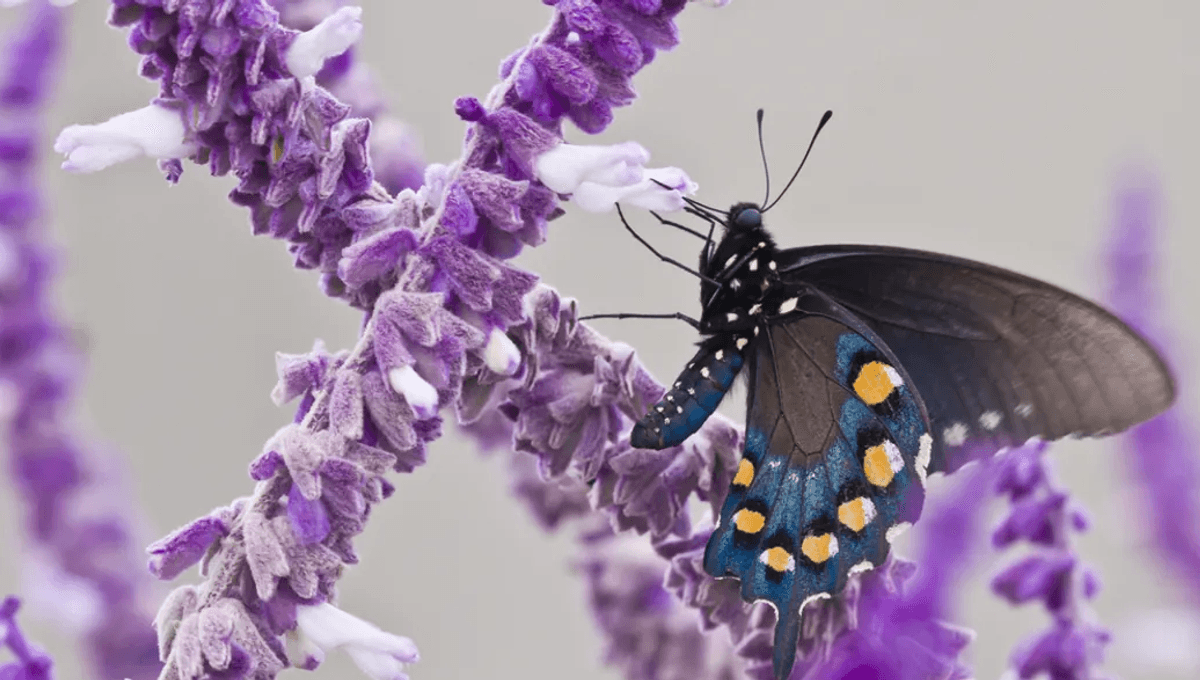
A fun question on Reddit asks “Do butterflies have any memory of being a caterpillar or are they effectively new animals?”
Moths and butterflies have very unusual life cycles, as you likely learned from a surprising number of children’s books where caterpillars are (unfairly) mocked by other insects for being ugly, before they retreat into a cocoon and emerge as a beautiful butterfly to the annoyance of the insect clique. Unfortunately, these books don’t tend to go down into the nitty gritty of how this transformation takes place, prioritizing listing the number of blueberries the caterpillar has eaten over explaining the biological processes taking place in a cocoon.
“What I learned,” biologist Professor Martha Weiss, who investigated caterpillar-moth memory, told NPR, “is that the caterpillar turned to minestrone and that those ingredients that made up the caterpillar were completely reorganized into a butterfly that threw away the leftovers that it didn’t need from the soup and was off.”
Humans generally don’t have memories from the first three or four years of our lives, and we’re willing to guess that we would remember even less if at four years old we melted down into minestrone. But, as Weiss discovered in a 2008 study, moths and butterflies can retain memories from their time as caterpillars, suggesting that the creatures’ nervous system remains during the transformation into a butterfly.
For the study, researchers from Georgetown University, including Weiss, released ethyl acetate into caterpillars’ environment, a smell you probably know from nail polish remover. Caterpillars are not bothered by the smell, but by pairing it with mild electric shocks they were able to train the insects to be adverse to it. Sort of like how you may be “not fussed” by orange juice, but might actively avoid it if every time you picked up a carton you got tasered by a scientist.
They then offered the caterpillars the choice of air containing ethyl acetate, or normal air. Seventy-eight percent of the caterpillars avoided the ethyl acetate, despite being unbothered by it beforehand. A month later, now moths, 77 percent of the moths chose to avoid the ethyl acetate. The moths had retained memory of their larval stage.
“The behavior represents true associative learning, not chemical legacy, and, as far as we know, provides the first definitive demonstration that associative memory survives metamorphosis in Lepidoptera,” the team wrote in the study.
“Our behavioral results are exciting not only because they provoke new avenues of research into the fate of sensory neurons during pupation, but also because they challenge a broadly-held popular view of lepidopteran metamorphosis: that the caterpillar is essentially broken down entirely, and its components reorganized into a butterfly or moth.”
We now know that large sections of the nervous system are preserved during the transformation, allowing butterflies and moths to retain memories of their larval stage.
The study is published in PLOS ONE.
Source Link: Do Butterflies Remember Being Caterpillars?